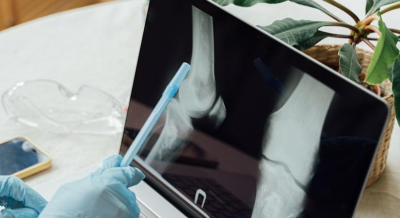Indian researchers develop diagnostic device to detect early-stage bone cancer
By IANS | Updated: June 27, 2025 17:53 IST2025-06-27T17:49:07+5:302025-06-27T17:53:51+5:30
New Delhi, June 27 In a major scientific breakthrough, researchers from IIT (BHU) in Uttar Pradesh have developed ...

Indian researchers develop diagnostic device to detect early-stage bone cancer
New Delhi, June 27 In a major scientific breakthrough, researchers from IIT (BHU) in Uttar Pradesh have developed a miniaturised, self-reporting diagnostic device that can detect early-stage bone cancer with high precision.
The first-of-its-kind sensor detects osteopontin (OPN) -- a key biomarker for bone cancer.
The device is reagent-free, portable, and cost-effective and is ideal for rural healthcare, said the research team led by Dr. Pranjal Chandra from the School of Biochemical Engineering.
The device works much like a glucose metre and enables quick, accurate, and on-the-spot detection, even in resource-limited settings.
The device uses a custom sensor surface composed of gold and redox-active nanomaterials, allowing it to function similarly to a glucose meter.
“This technology simplifies cancer detection and empowers primary health centres,” said Prof. Chandra. The findings are published in the prestigious journal Nanoscale (Royal Society of Chemistry, UK).
OPN is a crucial biomarker associated with osteosarcoma -- a highly aggressive form of bone cancer that primarily affects children and adolescents.
While current methods to detect OPN are costly and time-consuming, the new device offers rapid and accurate results with minimal equipment.
It is designed as a reagent-less immunosensor, which enables on-the-spot and affordable testing. It is especially beneficial in rural and resource-constrained areas where early cancer detection is often delayed.
Cancer is a major public health concern in India, with rising incidence rates and significant mortality.
Lauding the innovation, Director Prof. Amit Patra called it “a prime example of technology with a human face”. He said it contributes to precision medicine and national health priorities. He added that the innovation aligns with the government's Make in India and Start-up India initiatives.
A patent application has been filed, and efforts are underway to convert the prototype into a smartphone-compatible diagnostic kit for remote healthcare access, the researchers said.
Disclaimer: This post has been auto-published from an agency feed without any modifications to the text and has not been reviewed by an editor
Open in app